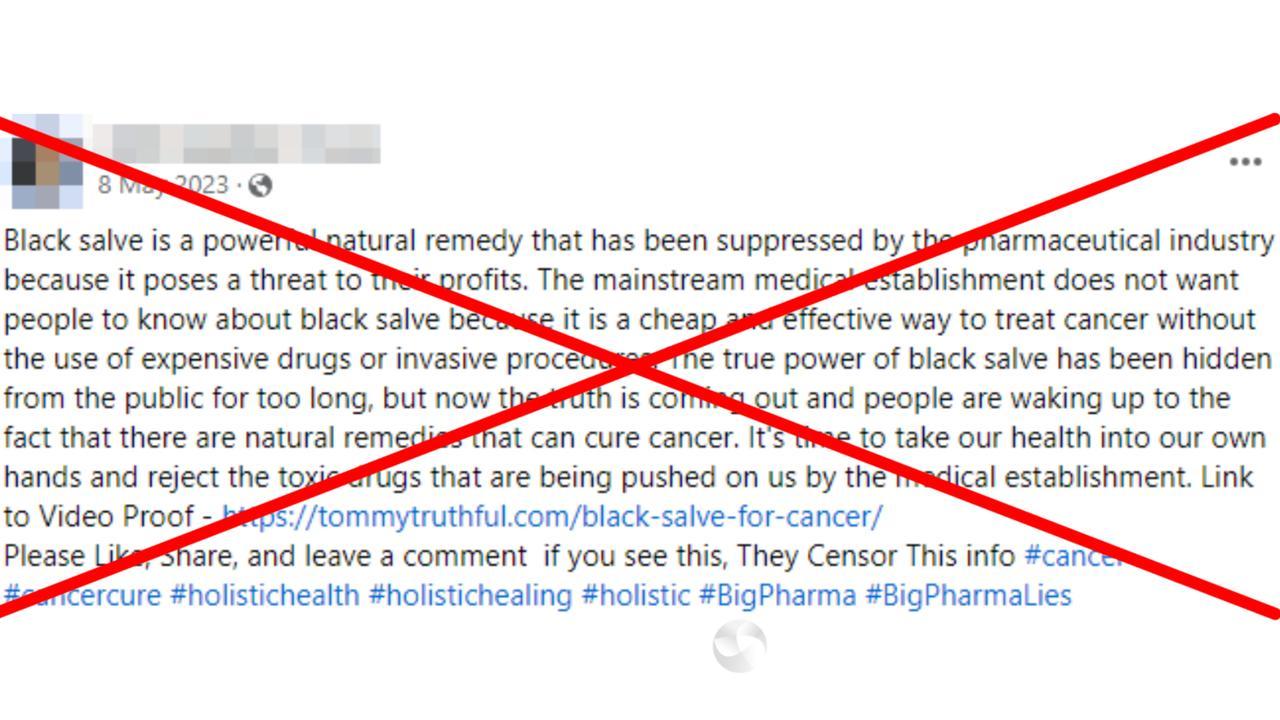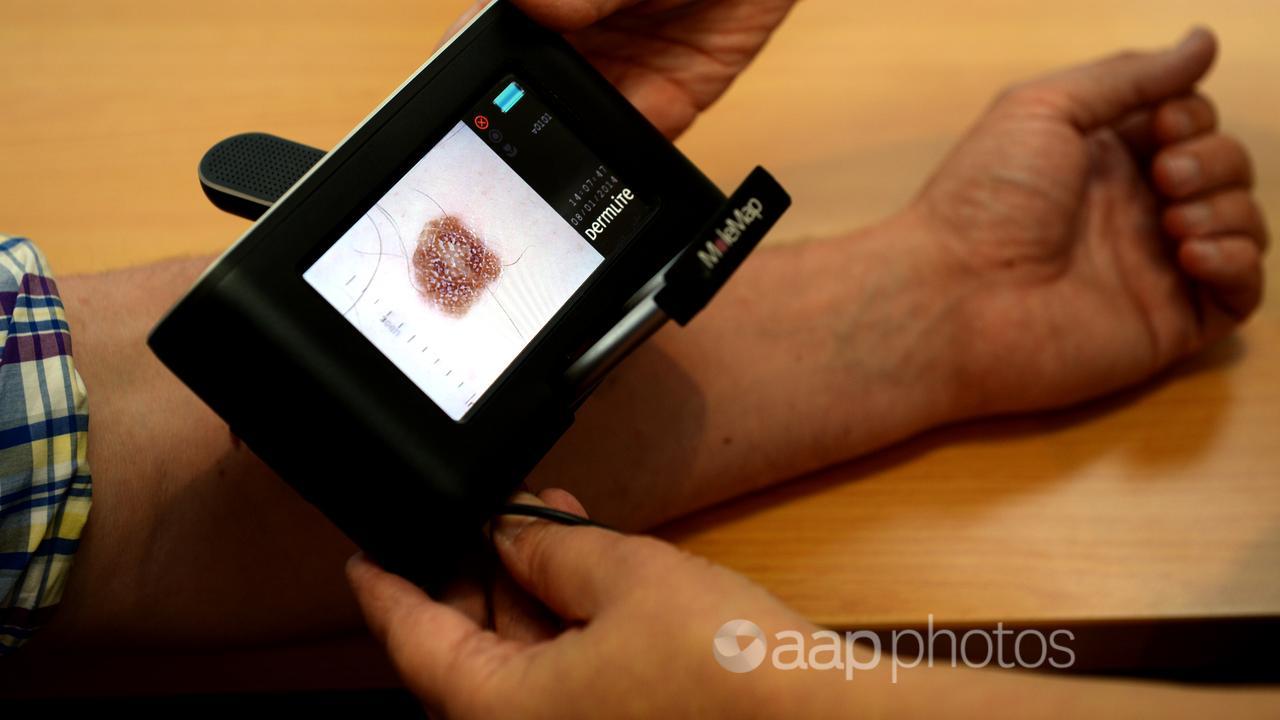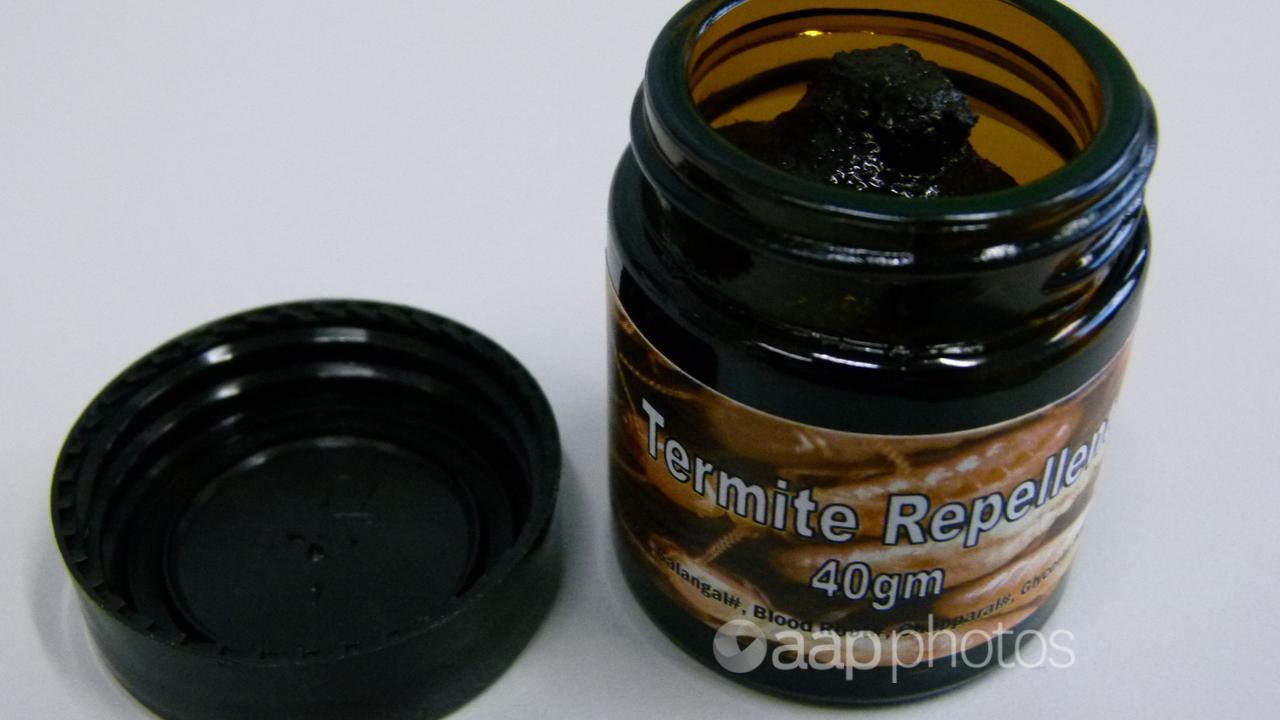Years of warnings about the damaging effects of black salve are not preventing social media claims that the alternative treatment can cure skin cancer.
The claim is false. There is no verifiable evidence it can cure cancer, but plenty to show it is corrosive and causes severe skin damage.
Social media posts, such as here and here, continue to claim it can cure cancer.
“The mainstream medical establishment does not want people to know about black salve because it is a cheap and effective way to treat cancer without the use of expensive drugs or invasive procedures,” one post reads.

The supply of black salve is prohibited in Australia, but it is readily available online as an ointment marketed as an “alternative medicine”. It has even been sold as termite repellent in order to get around the ban.
Black salve is typically applied to skin lesions, moles, scars and skin cancer. It destroys the skin cells and forms a black scar, which falls off.
This 2011 case study explains there are two types of black salve product.
The first is an ointment containing beeswax, cocoa butter, oil, charcoal, and clay that has been used to treat boils, abscesses, bee stings, and other minor wounds.
A second includes zinc chloride or bloodroot extract, “resulting in a biologically non-specific corrosive escharotic agent capable of indiscriminately dissolving healthy and diseased tissue alike”.
Both products are advertised as safe and effective for treating skin conditions, including cancer.
However, medical regulators say black salve is neither safe nor a cancer cure.
The Therapeutic Goods Administration (TGA) advises consumers against using black salve, warning it “is not aware of any credible, scientific evidence” it can cure or treat cancer.
“In addition there is no evidence that these products can be used to diagnose cancers. In fact, the evidence shows that they will cause skin irritation regardless of whether any malignancy is present.”

Likewise, New Zealand’s Medsafe says there is no scientific evidence black salve and similar products are effective at treating disease and skin conditions. US authorities also warn against its use.
Studies on black salve support these official positions.
A 2023 national retrospective black salve pathology case study of 409 patients found they had high rates of cancer persistence.
“Black salve caused necrosis of normal tissue when treating benign lesions, refuting claims of cancer specificity.”
A 2013 review of the literature around black salve recommended patients be educated about the lack of objective evidence supporting the efficacy as a skin cancer treatment, as well as its harm to the skin.
A 2018 Australian review of the literature about black salve said there had never been a controlled clinical trial.
“There is a lack of data regarding the long-term efficacy of black salve and no evidence to support claims that it is superior to conventional treatment for skin cancer,” the review stated.
Black salve had been associated with a number of adverse outcomes, including five cases of severe deformity to the nose.

Review co-author Cliff Rosendahl, from the University of Queensland, told AAP FactCheck the ability of black salve to cure cancer would be similar to the ability of hydrochloric acid (HCL) to achieve the same thing.
“Like HCL, black salve does not discriminate between cancerous tissue and normal tissue,” Professor Rosendahl said.
“I do not know of any scientific studies that validate black salve as either safe or efficacious.”
In a 2018 article for The Conversation, Prof Rosendahl wrote there’s evidence all tissue that comes into contact with the material is damaged, causing profound inflammation and eschar – a dry, dark scab or falling away of dead skin.
The claim black salve can cure cancer has also been debunked here.
The Verdict
The claim black salve can cure skin cancers is false.
There is no scientific evidence to suggest it can cure cancers, but there is plenty to show black salve damages skin tissue and can cause irreparable harm.
Health authorities and medical experts warn consumers not to use the product.
False — The claim is inaccurate.
AAP FactCheck is an accredited member of the International Fact-Checking Network. To keep up with our latest fact checks, follow us on Facebook, Twitter and Instagram.
All information, text and images included on the AAP Websites is for personal use only and may not be re-written, copied, re-sold or re-distributed, framed, linked, shared onto social media or otherwise used whether for compensation of any kind or not, unless you have the prior written permission of AAP. For more information, please refer to our standard terms and conditions.


















